Alumni
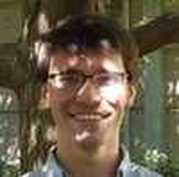
Trevor Brothers
Trevor Brothers was a graduate student working with Professor Traxler and Professor Swaab using ERPs and eye tracking measures in my research. He is now a postdoctoral researcher at the NeuroCognition Lab at Tufts University and the Martinos Center for Biomedical Imaging at Massachusetts General Hospital, working with Dr. Gina Kuperberg. He is interested in the role of prediction in language comprehension.
Trevor Brothers was a graduate student working with Professor Traxler and Professor Swaab using ERPs and eye tracking measures in my research. He is now a postdoctoral researcher at the NeuroCognition Lab at Tufts University and the Martinos Center for Biomedical Imaging at Massachusetts General Hospital, working with Dr. Gina Kuperberg. He is interested in the role of prediction in language comprehension.
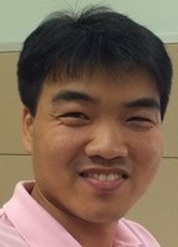
Wonil Choi
Dr. Wonil Choi was a post-doctoral scholar in John Henderson's Visual Cognition Lab, and is now Faculty at Gwangju Institute of Science and Technology in Gwangju, South Korea.
Dr. Wonil Choi was a post-doctoral scholar in John Henderson's Visual Cognition Lab, and is now Faculty at Gwangju Institute of Science and Technology in Gwangju, South Korea.
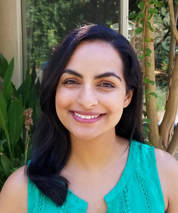
Shruti Dave
Shruti was a graduate student working with Dr. Tamara Swaab. In her research with Dr. Tamara Swaab, she has investigated how aging and age-related variability impact predictive processing during discourse comprehension. They have used a series of EEG/ERP experiments across undergraduate and older adult populations to assess whether predictive mechanisms are impaired in healthy aging, and if neural indices of prediction vary within and between age cohorts as a function of: cognitive control, working memory, semantic knowledge, neural noise, local and global contextual informativeness, and environmental validity of predictive cues. She hopes to use neural techniques to determine how predictive validity influences learning and memory outcomes across the lifespan.
Shruti was a graduate student working with Dr. Tamara Swaab. In her research with Dr. Tamara Swaab, she has investigated how aging and age-related variability impact predictive processing during discourse comprehension. They have used a series of EEG/ERP experiments across undergraduate and older adult populations to assess whether predictive mechanisms are impaired in healthy aging, and if neural indices of prediction vary within and between age cohorts as a function of: cognitive control, working memory, semantic knowledge, neural noise, local and global contextual informativeness, and environmental validity of predictive cues. She hopes to use neural techniques to determine how predictive validity influences learning and memory outcomes across the lifespan.
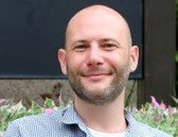
Thomas Farmer
Dr. Thomas Farmer was a Project Scientist and collaborated with Dr. Henderson. Thomas is interested in psycholinguistics and reading. He uses eyetracking, modeling, and fMRI.
Dr. Thomas Farmer was a Project Scientist and collaborated with Dr. Henderson. Thomas is interested in psycholinguistics and reading. He uses eyetracking, modeling, and fMRI.
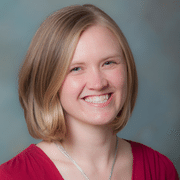
Liv Hoversten
Liv's research focuses on the cognitive and neural mechanisms underlying bilingual language processing. In particular, she is interested in the mechanisms by which bilinguals control the use of their languages during production and comprehension and in the relationship between bilingual language control and domain general cognitive control.
Liv did her PhD at UC Davis with Matt Traxler, Tamara Swaab, and Fernanda Ferreira, and she is now a postdoctoral researcher working with Manuel Carreiras and Jon Adoni Duñabeitia at the Basque Center on Cognition, Brain and Language (BCBL).
Liv's research focuses on the cognitive and neural mechanisms underlying bilingual language processing. In particular, she is interested in the mechanisms by which bilinguals control the use of their languages during production and comprehension and in the relationship between bilingual language control and domain general cognitive control.
Liv did her PhD at UC Davis with Matt Traxler, Tamara Swaab, and Fernanda Ferreira, and she is now a postdoctoral researcher working with Manuel Carreiras and Jon Adoni Duñabeitia at the Basque Center on Cognition, Brain and Language (BCBL).
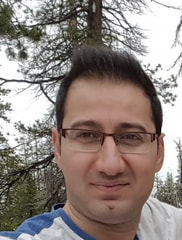
Hossein Karimi
Hossein did his Bachelor’s degree on language teaching and testing in Iran. Then, he moved to Scotland to do his Master’s in Psychology of Language at the University of Edinburgh. He started working towards his PhD under Dr. Ferreira’s supervision in 2012, and he is now a post-doc at Penn State University. Hossein's research interest is discourse processing in general and pronoun processing in particular. How do we manage establish a meaningful link between subsequent reference to a previously-encountered entity in discourse? This is particularly interesting when reference is ambiguous and multiple entities could potentially be chosen as the referent. Under these conditions, psychological biases for information processing are revealed. Hossein uses behavioral techniques such as sentence completion, reaction time and eye-tracking (both in reading and in the visual world paradigm) as well as non-behavioral techniques such as ERPs (Event-Related Potentials) to investigate these questions.
Hossein did his Bachelor’s degree on language teaching and testing in Iran. Then, he moved to Scotland to do his Master’s in Psychology of Language at the University of Edinburgh. He started working towards his PhD under Dr. Ferreira’s supervision in 2012, and he is now a post-doc at Penn State University. Hossein's research interest is discourse processing in general and pronoun processing in particular. How do we manage establish a meaningful link between subsequent reference to a previously-encountered entity in discourse? This is particularly interesting when reference is ambiguous and multiple entities could potentially be chosen as the referent. Under these conditions, psychological biases for information processing are revealed. Hossein uses behavioral techniques such as sentence completion, reaction time and eye-tracking (both in reading and in the visual world paradigm) as well as non-behavioral techniques such as ERPs (Event-Related Potentials) to investigate these questions.

Matthew Lowder
Dr. Matthew Lowder was a post-doc in Fernanda Ferreira's Psycholinguistics lab and is now an Assistant Professor in the Department of Psychology at the University of Richmond. Matt's research focuses on the cognitive mechanisms that contribute to language comprehension, from lower-level processes of word recognition to higher-level processes of sentence interpretation.
m an Assistant Professor in the
My research focuses on the cognitive mechanisms that contribute to language comprehension, from lower-level processes of word recognition to higher-level processes of sentence interpretation.
Dr. Matthew Lowder was a post-doc in Fernanda Ferreira's Psycholinguistics lab and is now an Assistant Professor in the Department of Psychology at the University of Richmond. Matt's research focuses on the cognitive mechanisms that contribute to language comprehension, from lower-level processes of word recognition to higher-level processes of sentence interpretation.
m an Assistant Professor in the
My research focuses on the cognitive mechanisms that contribute to language comprehension, from lower-level processes of word recognition to higher-level processes of sentence interpretation.
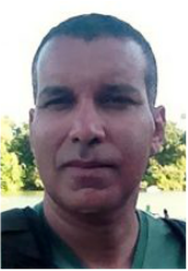
Miguel Oliveira Jr.
He was a visiting scholar from Universidade Federal de Alagoas (Brazil) and worked in collaboration with Fernanda Ferreira at Ferreira’s Lab.
Professor Miguel Oliveira Jr’s primary research interests focuses on prosody and discourse processing. He conducts research on discourse processing using standard psycholinguistic methods and non-invasive neuroimaging techniques. He is also interested in experimental phonetics and language documentation.
He was a visiting scholar from Universidade Federal de Alagoas (Brazil) and worked in collaboration with Fernanda Ferreira at Ferreira’s Lab.
Professor Miguel Oliveira Jr’s primary research interests focuses on prosody and discourse processing. He conducts research on discourse processing using standard psycholinguistic methods and non-invasive neuroimaging techniques. He is also interested in experimental phonetics and language documentation.